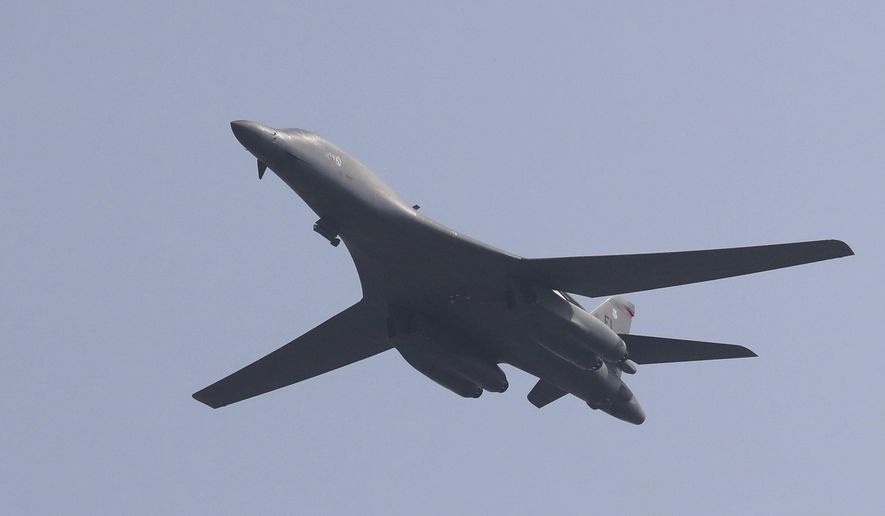The Air Force has grounded its entire fleet of B-1B Lancer bombers due to safety concerns, military officials said Friday, putting out of service a key part of U.S. long-range bombing capabilities that had recently taken part in air strikes in Syria.
In a statement Friday, the Air Force said it issued the order Thursday following an incident in Texas.
“During the safety investigation process following an emergency landing of a B-1B in Midland, Texas, an issue with ejection seat components was discovered that necessitated the stand-down. As issues are resolved aircraft will return to flight,” Air Force Global Strike Command said in a statement.
“The Safety Investigation Board is ongoing,” the Air Force continued. “The SIB’s purpose is to prevent future mishaps or losses and is comprised of experts who investigate the incident and recommend corrective actions. The safety of airmen is the command’s top priority. The Air Force takes safety incidents seriously and works diligently to identify and correct potential causes.”
B-1B Lancer bombers returned to action in the Middle East in early April, the Air Force said on Twitter two months ago. On April 14, the Air Force posted photos of the planes taking off in preparation for strikes against Bashar Assad’s forces in Syria, following the dictator’s use of chemical weapons in that country’s ongoing civil war.
According to Air Force fact sheets, the military has about 62 B-1B Lancer bombers in service. Each craft costs about $317 million and can reach speeds of over 900 miles per hour.
While the Air Force hasn’t divulged details of the ejector seat problems, Military.com reported Friday that the B-1 crew during the May 1 incident Texas tried to manually eject from the plane, but the seat didn’t blow, forcing them to make an emergency landing instead.
No one was hurt during the incident.
• Ben Wolfgang can be reached at bwolfgang@washingtontimes.com.




Please read our comment policy before commenting.